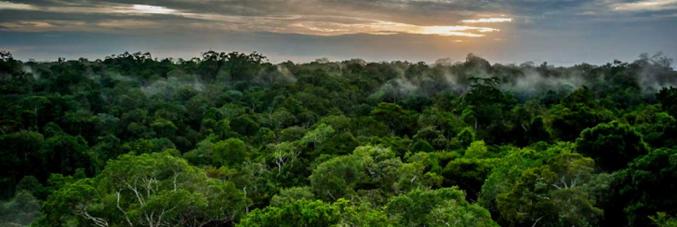
Unipd studies planetary health through the "niche theory"
07.07.2025
A study conducted by the University of Padua examines how environmental changes caused by human activities and new ecological pressures affect our health and the planet, using the theory of "niche construction". The health of the planet and human health are closely linked: the ongoing environmental crisis is already impacting our well-being, presenting us with an uncertain future characterised by unsustainable environmental conditions, resource scarcity, and increasing social inequalities.
To tackle these complex challenges, the study titled "Evolutionary Epidemiology: A Look Ahead at Human Non-Communicable Diseases through a Niche Construction Approach", published in «BioScience» and coordinated by the Department of Biology at the University of Padua, suggests adopting an evolutionary perspective to better understand our dependence on nature and the long-term effects of the environmental crisis on human well-being.
The researchers applied the theory of "niche construction" to examine how humans, by modifying the natural environment, also influence the ecological and social conditions in which they live. These changes can create new selective pressures that, although sometimes beneficial, could be harmful under other conditions or in the long term.
«We live in an 'industrialised niche', an environment created by humans that, while providing benefits, is generating new vulnerabilities and may be maladaptive», explains Sofia Belardinelli, the study's lead author. Integrating an evolutionary perspective into epidemiological studies and global health analyses can help us understand our role in the environmental crisis and the fourth epidemiological transition.
To clarify the contradiction between immediate benefits and maladaptive risks, the study's authors propose analysing the interactions between environmental changes caused by human activities, the resulting new ecological and selective pressures, and the potential health outcomes, considering different spatial and temporal dimensions: at the molecular, individual, and population levels, both in the short and long term.
After the ages of pestilence and famine, and following the regression of infectious diseases replaced by degenerative and anthropogenic diseases, we may be at the beginning of a new phase: a fourth transition characterised by greater health instability, with new pandemics and diseases related to biodiversity loss and climate change.
"An evolutionary perspective can also help us understand how the persistence of environmental threats might alter the ecological inheritance passed on to future generations, changing the conditions in which they will live and to which they will have to adapt," concludes Telmo Pievani, co-author of the study. Suboptimal conditions could compromise our ability to survive and reproduce, increasing the risk of falling into an evolutionary trap.



